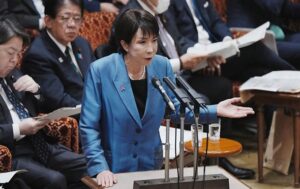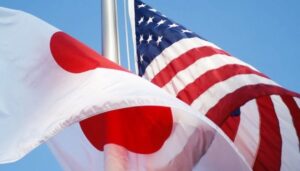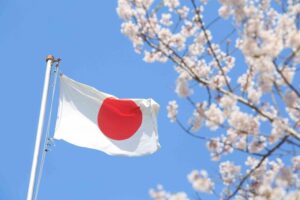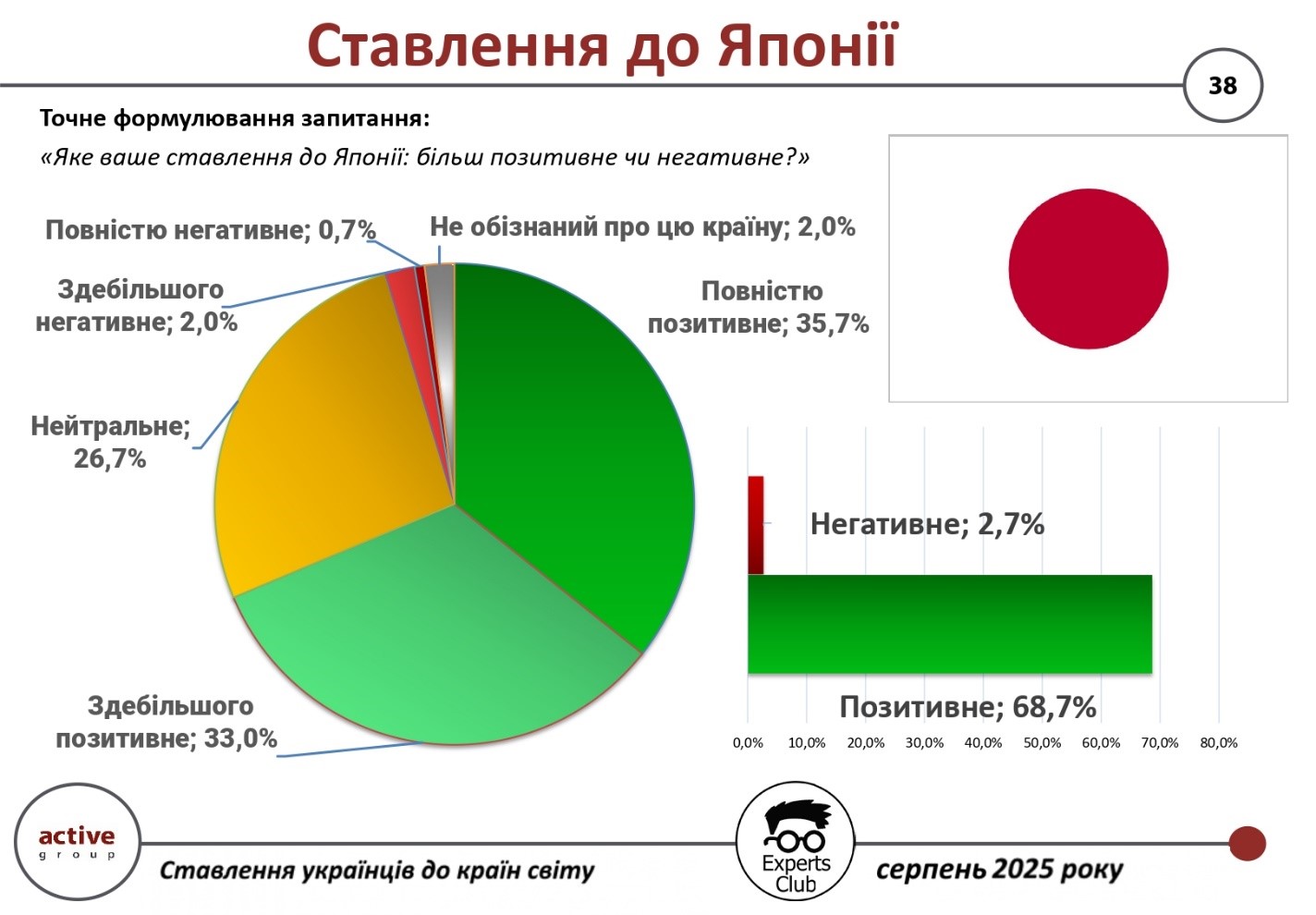
On Thursday, the Chinese Ministry of Commerce said that Japanese Prime Minister Sanae Takaichi’s remarks on Taiwan had a negative impact on Sino-Japanese economic relations.
“Prime Minister Takaichi’s erroneous remarks on Taiwan, made in public, have fundamentally undermined the foundation of China-Japan relations and seriously damaged bilateral economic and trade ties,” Western media quoted ministry spokesman He Yongqian as saying.
“If the Japanese side continues to take such actions and continues to move in the wrong direction, China will resolutely take the necessary measures, and all the consequences will fall on Japan,” she promised.
The media reminds us that China is the second most important market for Japan. In 2024, according to the UN, China purchased $125 billion worth of Japanese goods, mainly industrial equipment, semiconductors, and automobiles.
In November, Takaichi said that an emergency situation around Taiwan involving the use of force could escalate into a “situation that threatens Japan’s survival”; the Kyodo news agency explained that in such a case, Tokyo could resort to its right to collective self-defense.
However, the Chinese authorities consider the Taiwan issue to be an internal matter for China and called on Takai to retract his statements. As a result, Beijing urged its citizens to avoid traveling to Japan and recommended that those wishing to study in that country reconsider their decision in light of the security situation. The Kyodo news agency also reported, citing a source, that China had informed Japan of the suspension of imports of Japanese seafood
. On Thursday, US Ambassador to Japan George Glass condemned these measures by the PRC and called them “economic coercion.” After meeting with Japanese Foreign Minister Toshimitsu Motegi, he assured that the US is committed to ensuring Japan’s defense, including the Diaoyu Islands (Japanese name: Senkaku) in the East China Sea, which are controlled by Tokyo. The islands are the subject of a territorial dispute between Japan and China.
According to Kyodo, 64-year-old Takaichi is known for her “hardline views on security.” In particular, she advocates revising Article 9 of the 1947 Japanese Constitution, which renounces militarism. She is also considered a supporter of ultra-right and nationalist views.
The Taiwan issue arose in 1949 when the People’s Republic of China was proclaimed and part of the Chinese Kuomintang party settled on the island of Taiwan, naming it the Republic of China on Taiwan. Beijing insists on the “one China principle,” according to which it is impossible to recognize both the PRC and the Republic of China on Taiwan at the same time. At the same time, some states have unofficial cultural and economic offices of Taipei.

Japan’s Suntory Food & Beverage has launched Tokusui under the Tokucha brand, a zero-calorie functional product that claims to help reduce abdominal (visceral) fat in people with high BMI. The product is classified as a “functionally labeled product” (FOSHU/FFC) rather than a medicine.
According to the manufacturer and industry publications, the drink contains the plant polyphenol HMPA (3-(4-hydroxy-3-methoxyphenyl)propionic acid), obtained from the fermentation of rice bran; the label states that the ingredient “helps reduce internal fat in people with high BMI.” The drink is colorless, almost tasteless and odorless, and is available in 600 ml PET bottles.
A number of publications and social media posts refer to the new product as “water with the Ozempic effect,” but the press releases and product pages do not mention GLP-1 or semaglutide analogues. Tokusui is positioned as an over-the-counter functional beverage, not a medical weight loss product.
The Tokucha line is Japan’s most recognizable brand of beverages with “fat” claims; the introduction of “water” (rather than tea) expands the audience due to its neutral taste. The ingredient HMPA has already appeared in the group’s products (including claims about reducing visceral fat), which is also reflected in online retail listings.

US President Donald Trump will visit Japan from October 27 to 29 and hold talks with new Prime Minister Sanae Takaichi, Japanese Cabinet Secretary Minoru Kihara said on Wednesday.
“President Trump’s visit will provide an extremely important opportunity to further strengthen the US-Japan alliance,” Kihara said, according to Kyodo.
He expressed hope that Trump’s trip would establish a personal relationship of trust between him and Prime Minister Takaichi and ensure the joint implementation of the concept of a “free and open Indo-Pacific region.”
According to Kyodo sources, Takaichi plans to discuss with Trump a joint response by Japan and the US to the growth of China’s military presence in the East China Sea and South China Sea, as well as North Korea’s missile and nuclear programs. Other topics will include US-Japan trade, the investment agreement signed last July, and Japan’s defense spending.
Trump is expected to meet with Emperor Naruhito of Japan on Monday, with Takaichi on Tuesday, and to visit the US naval base in Yokosuka.
Trump last visited Japan in 2019. This time, before traveling to Tokyo, Trump is expected to attend the ASEAN summit in Malaysia and then head to the APEC summit in South Korea, where he may meet with Chinese President Xi Jinping.
In turn, Japan’s new Foreign Minister Toshimitsu Motegi said he would coordinate with Washington on the implementation of the US-Japan trade agreement, under which goods from Japan are subject to a 15% tariff.
The Japanese parliament elected Takaichi, the head of the ruling Liberal Democratic Party, as the country’s prime minister the day before.
According to Kyodo, 64-year-old Takaichi is known for her “hardline views on security.” The former interior minister advocates, in particular, revising Article 9 of the 1947 Japanese constitution, which renounces militarism.
Takai is considered a supporter of far-right and nationalist views and is a member of Japan’s largest conservative and nationalist non-governmental organization and lobbying group, Nippon Kaigi. She is vice-chair of the parliamentary conference on the restoration of Shinto shrines and the promotion of moral education. She has repeatedly visited the Yasukuni Shinto shrine, a symbol of Japanese militarism: visits by high-ranking Japanese officials to the Yasukuni shrine traditionally provoke a sharp reaction in Beijing, Seoul, and Pyongyang and are seen as an insult to countries that suffered from Japanese occupation. She has also been critical of China’s economic policies and has advocated for reducing economic dependence on China.

Japan’s Toyo Tires has announced plans to build an innovation center in the city of Injiya, Serbia. The new facility will focus on research and development in the tire industry and related technologies, a Toyo representative told local business media.
According to the project, the center will include laboratories for materials science, test benches, and research units that will collaborate with regional universities and technology startups. Construction is expected to begin in the first quarter of 2026.
Toyo Tires also plans to integrate the Serbian center into the company’s global research network, facilitating the exchange of knowledge and resources between its sites in Asia, Europe, and America. This will help accelerate the development of new compounds, innovative mixtures, and environmentally friendly solutions.
Investing in Serbia as part of this project is seen as the second stage of Toyo’s expansion in the Balkans — the company already has production facilities in Serbia and now intends to strengthen the scientific and technical core of its business.
Toyo Tires is a global tire manufacturer based in Japan. The company has been in operation since 1945 and manufactures tires for passenger cars, SUVs, trucks, and specialized equipment.
Toyo is known for its innovative solutions in the field of compounds, environmentally friendly compositions, and high testing standards. The company supplies products to more than 100 countries around the world, and its research and development network includes centers in Japan, the US, Europe, and Asia.
Toyo also actively collaborates with automotive brands and participates in motorsports, which allows it to test and develop technologies under extreme conditions.
Japan’s Toyo Tires to build innovation center in Serbia
Source: https://t.me/relocationrs/1590

The Nikkei Asia news portal reported that the Japanese company Sojitz will invest in the construction of a new international airport in Tashkent.
According to the publication, Sojitz will start implementing the project this year. The construction is part of the company’s $1 billion infrastructure investment.
The Tashkent airport will be built in partnership with the Saudi company Vision Invest on the basis of a public-private partnership. Sojitz plans to invest tens of billions of yen, or hundreds of millions of dollars, in the project. The company has previously participated in international airport projects in Kumamoto and Okinawa prefectures, as well as on the islands of Palau.
“The project for a new airport in Uzbekistan was approved in August 2025. According to the plan, its opening is scheduled for 2028. The new airport will be able to handle up to 20 million passengers per year and provide more than 40 takeoffs and landings per hour, making it the largest in Central Asia,” the article notes.
Sojitz also plans to participate in other infrastructure projects in Uzbekistan. Together with the Turkish company Ronesans International, it plans to build a large 800-bed hospital, a 1 GW wind farm, and a 1.6 GW thermal power plant in Samarkand.
According to Nikkei Asia, Uzbekistan is the largest country in the region with a population of 37 million. Annual GDP growth exceeds 6%, and tax breaks and incentives are available for foreign investors. The corporate tax rate is 15%.
“As of October 2024, 54 Japanese companies are operating in Uzbekistan, twice as many as in 2019. In June, Sojitz opened its first official office in Tashkent,” the publication notes.
The article also notes that other Japanese companies are actively developing infrastructure projects in Uzbekistan. For example, Toyota Tsusho, through its subsidiary Eurus Energy Holdings, is exploring a site for a 500 MW wind farm and has signed an agreement with NEC to build data centers. Marubeni, in partnership with the UAE, is implementing a project to build a wastewater treatment plant.
In addition, Nikkei Asia reports that Uzbekistan is in talks with Japan’s Ministry of Economy, Trade, and Industry to expand cooperation in the extraction of mineral resources, particularly those of strategic importance.

According to a survey conducted by Active Group in collaboration with Experts Club in August 2025, Ukraine has one of the most positive attitudes toward Japan among countries worldwide.
According to the study, 68.7% of Ukrainians have a positive opinion of Japan (33.0% — mostly positive, 35.7% — completely positive). Only 2.7% have a negative opinion, while 26.7% of respondents are neutral. Another 2.0% admitted that they know little about the country.
“Japan occupies a special place in the perception of Ukrainians. It is seen as an example of a country that has achieved great results through innovation, technological development, and the preservation of traditions. This level of trust can become the basis for further expansion of cooperation between our countries,” emphasized Active Group CEO Oleksandr Pozniy.

In turn, Maksim Urakin, co-founder of Experts Club, emphasized the economic dimension:
“In 2025, the total trade volume between Ukraine and Japan exceeded $521 million. At the same time, Ukrainian exports to Japan amounted to only $18 million, while imports exceeded $502 million.
This resulted in a significant negative balance of $484 million. Such an imbalance is a signal to look for new opportunities for Ukrainian goods to enter the Japanese market,” he stressed.
The study was part of regular monthly monitoring of Ukrainians’ attitudes toward key international partners.
The full video can be viewed at: https://www.youtube.com/watch?v=YgC9TPnMoMI&t
You can subscribe to the Experts Club YouTube channel here: https://www.youtube.com/@ExpertsClub
ACTIVE GROUP, EXPERTS CLUB, JAPAN, Pozniy, RELATIONS, SOCIOLOGY, TRADE, UKRAINE, URAKIN